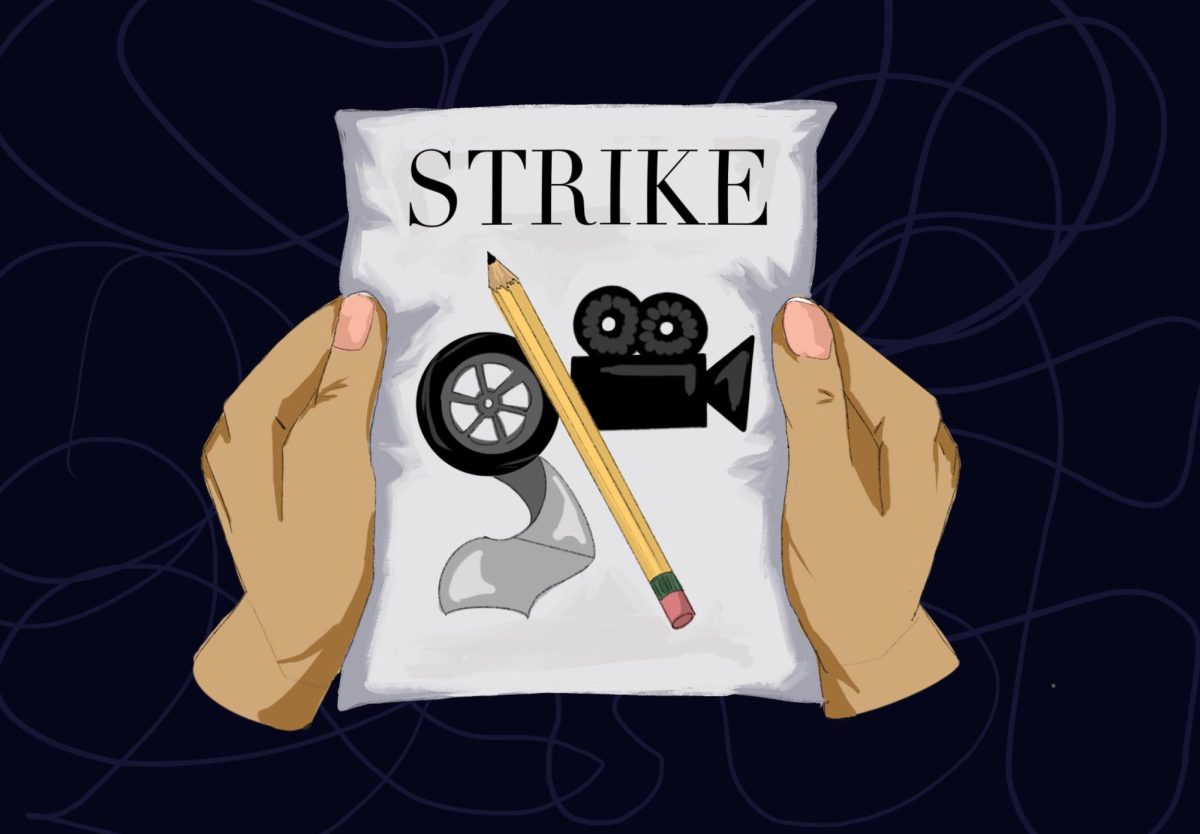On May 2, 2023, Hollywood would lose the backbone of their industry when their writers decided they had enough of industry mistreatment. The Writer’s Guild of America went on strike against big Hollywood studios and film companies. On Sept. 25, 2023, the WGA reached a tentative agreement with the Alliance of Motion Picture and Television Producers.
The writers have officially finalized the contract, declaring the strike over on Sept. 27, 2023. The WGA won big on this new and improved contract, only made possible by the WGA’s ability to stand together.
Several factors led to the Writer’s strike that lasted almost 150 days. According to IndieWire, writers demanded higher wages that would keep up with inflation. The writers also asked to exclude the involvement of AI in show production, fearing that AI would put their jobs at risk.
Hollywood management of the strike was another reason why the strike persisted, costing companies lots of money. Many live shows, movies and other programs in production were pushed back because of the strike. As the strike continued and Hollywood kept bleeding money, they had to make a deal, now on the WGA’s terms.
The total loss of revenue is estimated to be $3 billion, but if the AMPTP had acted sooner, the loss of revenue would have significantly decreased. Because of Hollywood’s stubbornness, they had to make a desperate deal with the WGA, allowing the WGA to force the hand of the AMPTP. It allowed them to reach an agreement that best suited their writers and others in the future. The WGA triumphed in their objective, leaving Hollywood with the smaller end of the stick
Many things the AMPTP swore they would never give the WGA were given in the new contract, forcing their hand for a new contract that benefitted the WGA. While the strike is over, the contract is now officially up for a ratification vote, but writers can return to work during this process. While still up for a vote, the AMPTP met many WGA demands.
According to CNBC, the agreement includes a 5% minimum pay increase, and additional bumps will occur in 2024 and 2025. The new contract also restricts the use of AI, as it cannot write or rewrite any material and has been considered not source material. In terms of streaming, the guild negotiated a residual, basing it on the viewership of shows.
According to an article by the WGA, the term of the agreement lasts from Sept. 25, 2023, to May 1, 2026. As many of the WGA’s demands were met, this is a great deal, and one that was long overdue. This new deal worked out greatly for the WGA. After nearly 150 days, the writer’s strike is now over, with a contract that is more than satisfactory for the WGA. Because they stood strong on the picket lines for so long, it forced the AMPTP to come to the table and meet the WGA’s demands. This movement has secured the futures of writers of the present and future.
Despite all the progress, the contract between the WGA and AMPTP will only last until May of 2026, when it will need a reapproval. What happens when May 2026 arrives? And what about all the collateral damage caused by the strike?
Although concerns still remain, writers have finally accomplished the goal they have had their eyes on for close to 150 days: fair wages, protection against AI and better working conditions. By having a strike that put everything to halt, Hollywood has learned their lesson to treat their writers properly. The writers make up a lot of what they produce and make revenue off of, yet for so many years, Hollywood has abused their power to justify their treatment of writers.
Now, there are no more loopholes, no replacing writers and no more excuses to pay them so little. Hollywood also learned to not be greedy, as many of the demands were not only reasonable but very affordable for Hollywood. The writer’s strike showed that Hollywood is nothing without its writers. Perhaps they will finally treat their writers with the respect they deserve.


